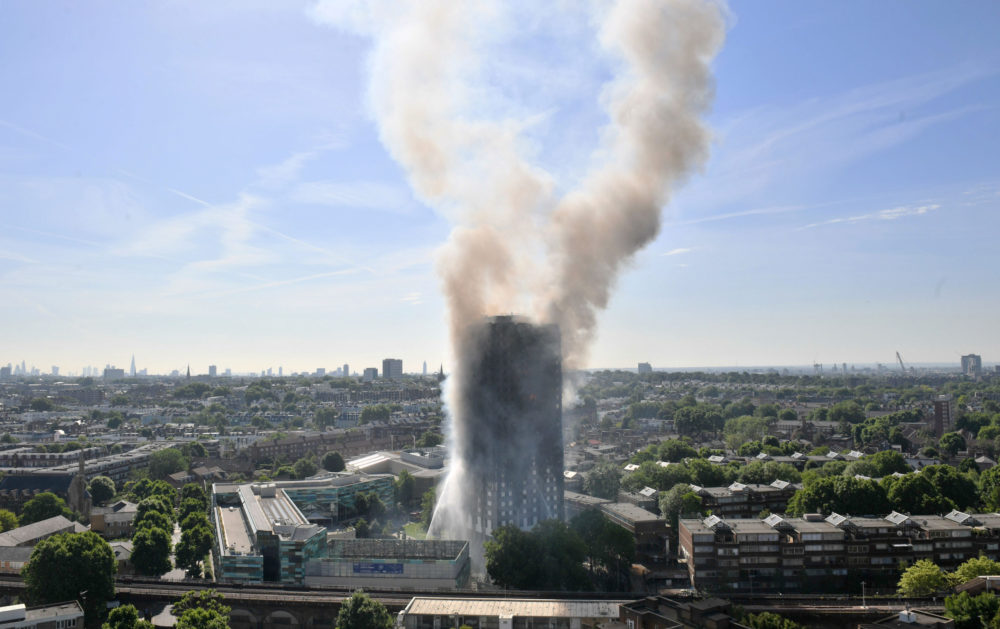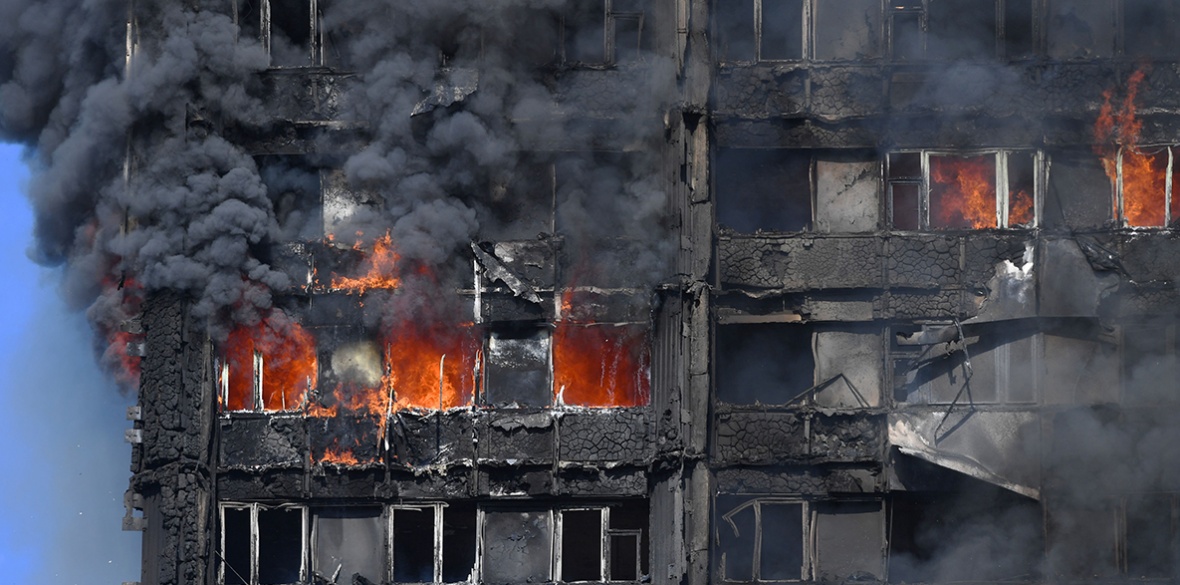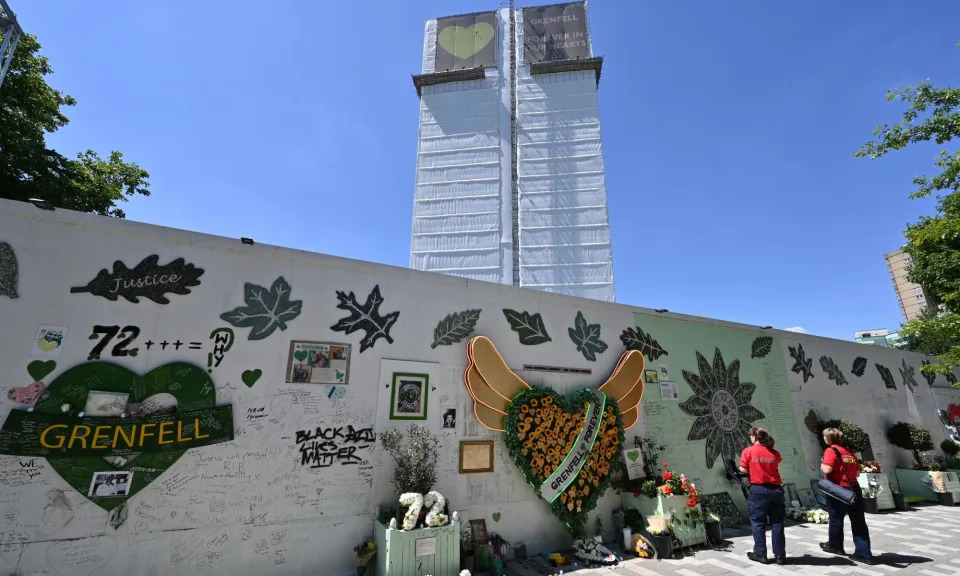The Shame of Grenfell

Ben Wildsmith
Yesterday’s report into the Grenfell fire was the most serious piece of official business the UK has produced in many years.
Listening to Martin Moore-Bick outline the concerns and demands that emerge from it was salutary in several ways.
Firstly, after a period when government business has lacked seriousness and professionalism, it was jarring to hear somebody performing competently under pressure, adhering to his brief, and unswayed by political motives.
Secondly, his tone was matched to the gravity of the events at hand. He concluded by reading the names of those unfortunates who had died in the disaster and had clearly taken time to ensure that his pronunciation of them was correct.
That’s a small detail that can mean the world to people, as we in Wales know too well.
Finally, the work he had overseen was wide-ranging in its outlook, recognising the overarching failings in national life that conspired to allow the shameful series of events and omissions under investigation.
There are echoes of Aberfan in the Grenfell story. In particular, how the voices of ordinary people can be ignored on even the most vital of topics, audible only in the hush of an enquiry room when it is too late.
As we pick through the facts of events like these, finding negligence, greed, and dishonesty, we invariably find that the people ultimately effected had warned us all along that they were in danger. Reaching for explanations, we might put some failings down to human frailty or overwork.
The outright refusal to listen when it might have helped is the toughest pill to swallow, speaking, as it does, to a contempt with which no human being should ever be held.
The shameful characterisation of the Hillsborough victims by the Sun newspaper also reverberated through this tragedy. In its immediate aftermath, ‘Tommy Robinson’ and his supporting cast of amoral opportunists sought to foreground the immigration status of people who had perished in the fire.
We should never have heard from him again. What sort of country allows somebody like that to style himself as a patriot; to wear its flag and speak its name.
The same sort of country, I suppose, that tolerates the Sun climbing the pulpit this morning to demand the prosecution of those held responsible in the Grenfell report.
The same paper that shamed journalism over Hillsborough has been the leading propagandist for every malign force that coalesced against the poor people in Grenfell on 14th June 2017. From the miners’ strike to Brexit, it has pumped out disinformation to the British public, encouraging people to turn against their own.
Every expression of community: trade unions, public service, social housing, has been denigrated and maligned as if cohesion was an undesirable societal trait.
If you are a manufacturer selling dangerous goods, or a developer who wants them to cover up an inconvenient cluster of disadvantaged humanity in sight of your luxury apartments, or a council who does business with such a developer, then social cohesion is, indeed, undesirable.
You need those threatened by your plans to be othered, silenced, and powerless.
Just as Aberfan was about much more than tip management, and Hillsborough told us a story beyond football and crowd policing, Grenfell is a tragic fable.
The obscene centring of profit at the expense of humanity in our society, and the proliferation of public dishonesty that facilitates it are marks of shame upon us all if we allow it to continue.
One of the accounts of the night describes a man on the phone to his young nephew who was trapped in the tower with no hope of escape. He was telling the youngster that Spiderman would come to save him, trying to offer some hope and comfort when all was lost.
We can count the days until The Sun resumes bullying anyone who stands in the way of its owner’s interests. When Moore-Bick’s words have faded, perhaps the Daily Mail will try to convince us that the judiciary are our enemy again.
Their noise, and that of politicians who cash cheques from the same source, needs to be drowned in a new conversation on these islands. We need to listen to each other.
How the healthcare system failed survivors in the aftermath of the Grenfell fire
Survivors of the Grenfell fire were failed by health and care services who did not listen to their needs, according to a new report by The Kings Fund.
After years of not being listened to, the survivors and the bereaved and the Grenfell community, then had to contend with the health and care services, who did not listen to their needs all over again.
In a report by the think tank The Kings Fund, those most impacted by the fire talk about structural racism and discrimination. That health and care authorities imposed what they believed was needed.
But the community told them otherwise, and The King’s Fund, which will release its report on Monday, says there are many lessons to learn from this, not least services need to be willing to make changes informed by what they learn from the people who are living in that neighbourhood or borough.
The report gives examples of tick box exercises for mental health including offering Muslim men cognitive behaviour therapy with white female therapists; or a screen and treat programme that was a door-knock of 11,000 homes – missing those most impacted.
The mental health teams are praised for reacting quickly and listening. On the physical health side, there remain concerns.
Enhanced screening for the survivors did not always happen because some GP services weren’t aware they were meant to be doing it.
Natasha Elcock, who escaped from the tower block with her partner and daughter, told Channel 4 News about asking for blood samples to be taken so they could be checked in the future and being told this couldn’t be done.
Yet, she says, the fire fighters had bloods taken for research to see what impact the fire had on their health.
The King’s Fund says its report is about sharing what went wrong and what worked, so health and care authorities can be prepared.










